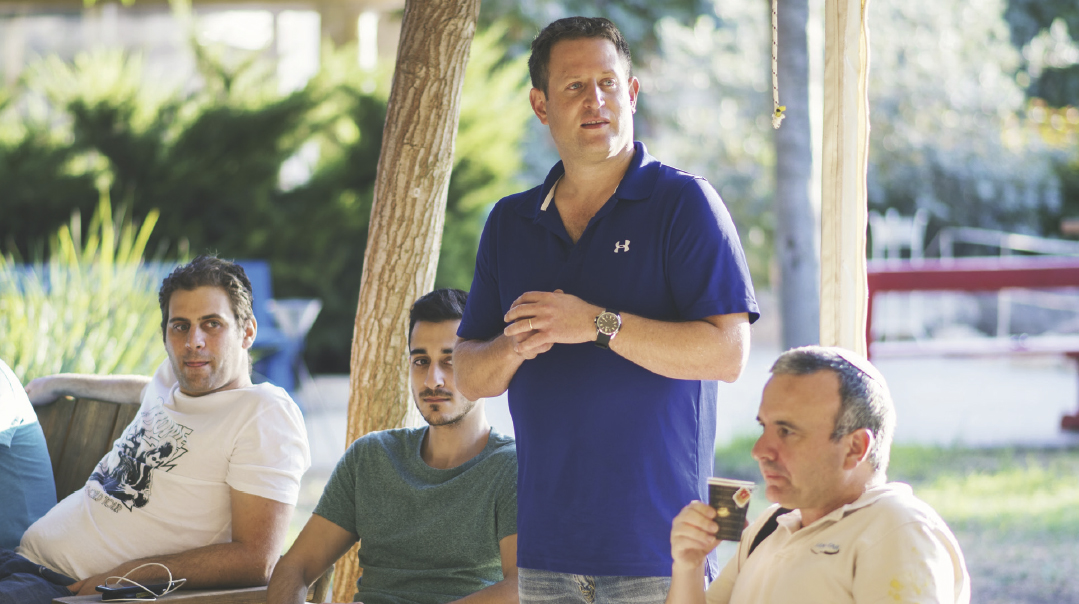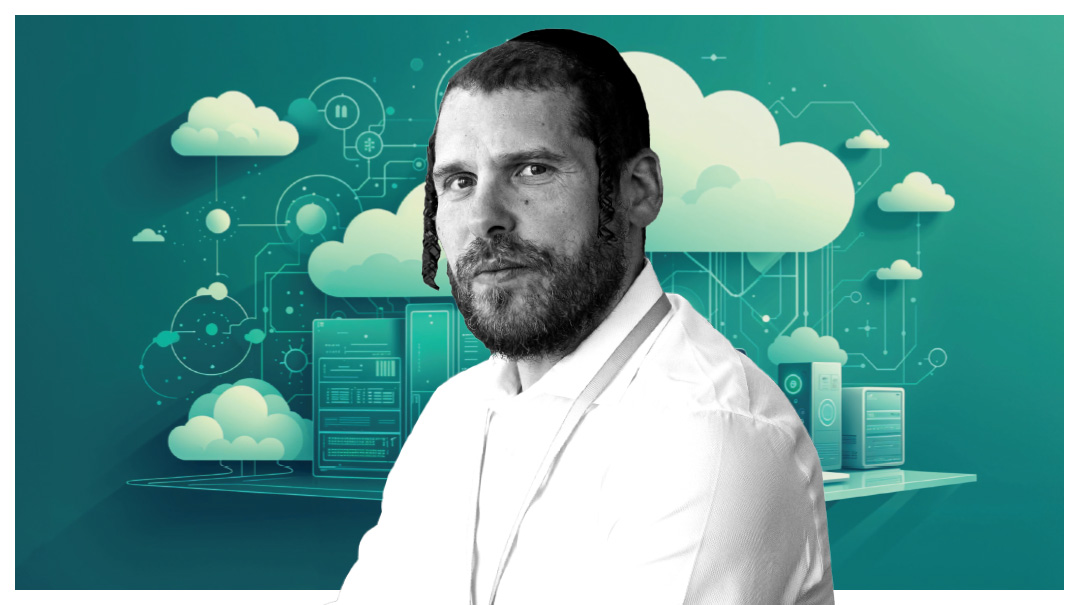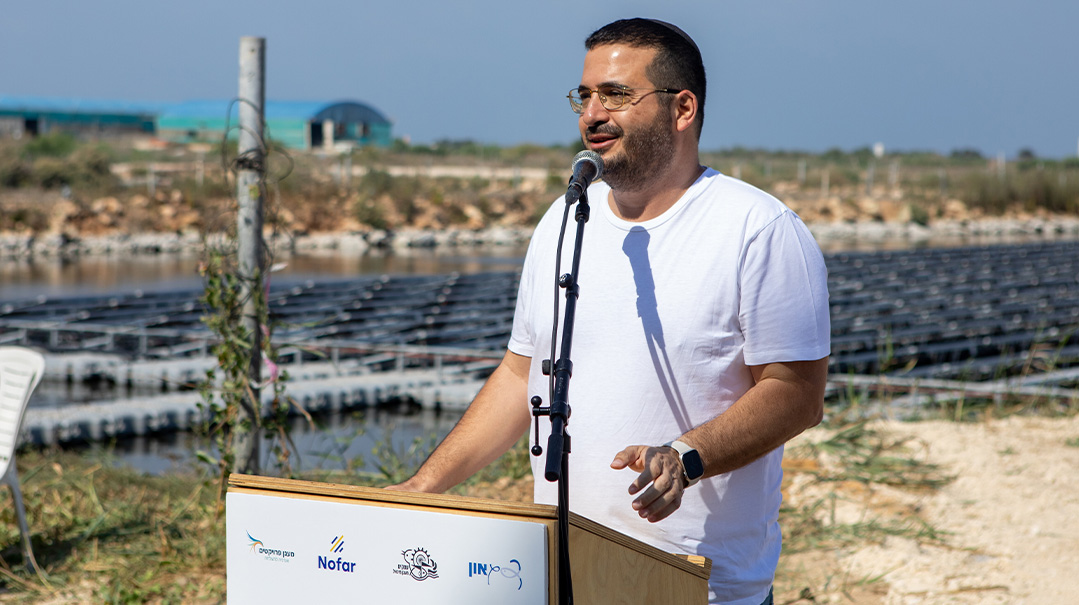A COMPANY ON THE RISE
| December 18, 2019Hiring using artificial intelligence - meet Intelligo

I
In 2012, Yahoo CEO Scott Thompson was fired after it was discovered that he lied about his academic credentials on his résumé. This is exactly the type of situation that Intelligo helps prevent, says CEO Shlomo Mirvis. The Israel based startup, founded by Mirvis, Dana Rakovsky, and Nadav Ellinson, is using artifi cial intelligence (AI) and machine learning to streamline and simplify the background-check process so results are more accurate, faster, and more thorough than ever.
Before Intelligo came into existence in 2015, companies or individuals who wanted to investigate potential employees or people they might invest with could hire analysts to provide background checks to ensure the person they were about to hire was trustworthy. In the best-case scenario, Mirvis says, these analysts would spend weeks sifting through information, and then turn it into a comprehensive, understandable report that could cost tens of thousands of dollars. But because we live in a world saturated with data, these background checks were often difficult to read and understand. So Intelligo’s founders credit their success to doing what no one else has done — providing comprehensive background checks using new and advanced technology, says Rachel Siegman, director of marketing. Their competition resides in the world of companies that are still doing background checks manually.
THE INVESTIGATIVE PROCESS
To complete their comprehensive background check, Intelligo’s AI and machine-learning technology sifts through every source available, including criminal, civil, state, federal, and county records, as well as financial reports and social media, Mirvis explains. Its clientele is comprised of investment allocators, private equity firms, large hedge funds, and investment banks. While AI is what makes Intelligo so unique, the company balances it with human analysts who review the information to ensure 100 percent accuracy, shares Nadav Ellinson, vice president of product management and a cofounder of the company. The technology is so advanced that it can achieve a level of 90 percent accuracy. The human involvement acts as an insurance policy to bridge the gap and reach the full 100 percent. “That’s something that’s unique in and of itself,” Ellison says. “We’ve built a platform internally, which allows analysts to be able to interact with the data and to have that molding together of human and machine. It leads to very high efficiency.” One of Intelligo’s directors and investors (who has chosen to remain anonymous) became involved when he and a friend were looking to hire a CEO for a company in Africa. Knowing the importance of due diligence in the hiring process, he approached Intelligo for a background check on their potential hire. “They did a report on the person that was very thorough and accurate,” he explains. “Basically, we thought we knew him and then realized we knew nothing about him.” Because of Intelligo’s background check, he didn’t hire that person. But he was so impressed with Intelligo’s work that he decided to invest in the company. “I’ve been in the story since the beginning as a client, as someone who used Intelligo for due diligence for projects for our company, and then as an investor who has seen it go from very little technology and a lot of human interaction to mostly technology and very little human input,” he shares.
SAVING TIME AND MONEY
Relying mostly on human intelligence is a costly operation. Now, results are more accurate and even less expensive. The director quoted above said that the report he’d asked for could have cost $50,000 using a company that does manual background checks, but because of Intelligo’s technology, it had cut the cost down to just $3,000. “Since then, we’ve done many of these types of reports, and I have seen myself how the accuracy of the reports has become even greater while the cost of the reports has gone down,” he says. In addition, the turnaround time to getting the information in hand is much quicker than before. Intelligo sends a comprehensive report directly to its client’s inbox within two to three business days of the initial request, compared to the two to three weeks it can take to receive a report from a company performing the checks manually. This allows the client to move on to other opportunities much faster or proceed confidently without delay. “The real money-saving, though, is on the other end,” Ellinson says. “If we find something that a competitor didn’t, and they choose to not invest because of our background check, they can often save many millions of dollars on avoiding bad investments.” Siegman offered an example of one report that Intelligo produced, which found that a fund manager had fabricated having graduated from a certain university and that he’d been involved with multiple lawsuits. Because of this information, the client was able to accurately assess the levels of risk associated with the individual and ultimately chose not to invest with him. It’s that kind of quality that continues past the hiring stage as well. Intelligo stays with the company or individual even after the new employee or executive is brought on board. “[The person you hire] might be great when you [first] bring him on, but then he could have issues a month, two months later, a year later,” the director quoted above explains. “The machine that they created does ongoing due diligence. So it’s constantly crawling and monitoring the Internet as almost a ‘Big Brother,’ where you can see suspicious activity [and] dubious connections, and understand the risks that can be either with people you invest with or your own employees.”
A practical example of ongoing due diligence is hiring an Uber driver who passed the initial background check, but just a month later commits a crime in a different state. “He’s already a licensed Uber driver, and you have no way to know about the crime because you already did a background check,” the director says. “You could technically go ahead and order a background check every year, which a lot of financial institutions do.” But if the person or company who hired that driver is using Intelligo, they would immediately get a flag about what happened. “When you do it in a way where there’s a machine that constantly monitors them, you’re preventing the liability of having someone on your team who could be dangerous,” he says. Another way Intelligo is changing the way people view background checks is that they are no longer waiting until the very last minute in the hiring process to order one. Because background checks used to be expensive and cumbersome to wait for, with no alternative option, people would order them right before they were planning to close a deal. “They’d spend a lot of time and effort doing research, and right at the end, all of that investment would have been wasted,” Ellison explains. “Now we see clients doing background checks much earlier because they are more convenient and affordable, and the results come back quickly.”
ACHIEVING A MISSION
Intelligo models the innovation they offer to others in their own work environment as well. Siegman notes that all the walls in their offices are glass, echoing the transparent, trustworthy company culture. She also credits Israel’s startup mentality with a high level of success. “Some of it may come from general Israeli chutzpah,” she says. “People aren’t questioning or nervous. Here, [what’s rewarded] is the ideology of hard work reaping benefits. That provides a lot to startup culture. They work hard and late, and are willing and happy to do it because they are making an impact.” Ellinson addressed the fact that because Intelligo is a startup and does not have a complicated hierarchical structure, decisions can be made quickly, and young employees can easily work their way up. “When people come into work, they’re not just coming in to work for a company that is paying them a salary. Rather, they are coming in to achieve a mission and to be able to change an industry.” As CEO, Mirvis spoke about the unique position he is in to create a company culture. His original goal, which he says he’s achieved, is to put together a dream team of clever and intelligent employees, so everyone can constantly learn from each other. He says he looks for people who smile a lot, so they can better deal with a startup’s constant challenges, and because he realizes how important it is to have a positive demeanor when working with a team. Mirvis says his goal is for Intelligo to be an industry leader yet his ultimate dream is to create a more reliable, transparent world. So his desire includes having other companies they’re in competition with thrive as well. Not only does that competition create a better product, he says, but “their success is my success.”
(Originally featured in 2.0, Issue 7)
Oops! We could not locate your form.













